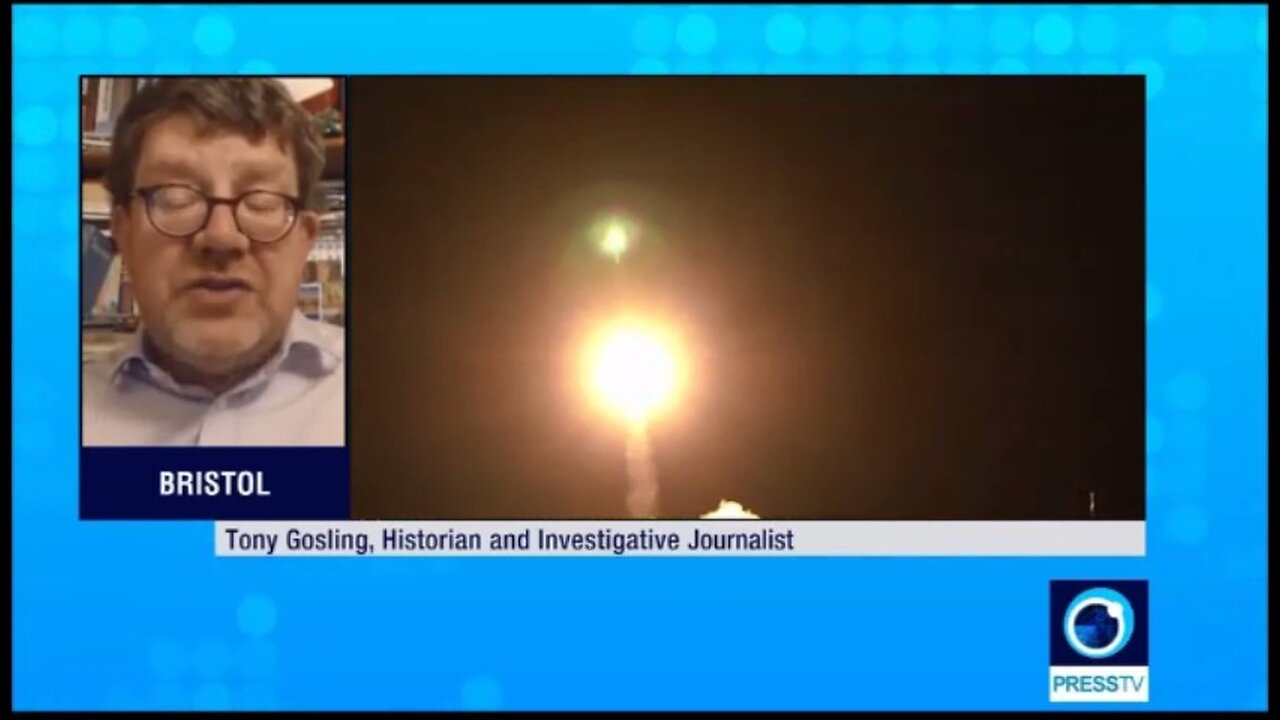Premium Only Content

Iran's bloodless strike on Israel, decoy drone attack response to IDF Damascus attack & UN failures
The Missiles of April
Scott Ritter Apr 14, 2024
https://www.scottritterextra.com/p/the-missiles-of-april
An Iranian missile is launched. Scores of these missiles were used to attack Israel.
Iran’s retaliatory attack on Israel will go down in history as one of the greatest victories of this century.
I’ve been writing about Iran for more than two decades. In 2005, I made a trip to Iran to ascertain the “ground truth” about that nation, a truth which I then incorporated into a book, Target Iran, laying out the US-Israeli collaboration to craft a justification for a military attack on Iran designed to bring down its theocratic government. I followed this book up with another, Dealbreaker, in 2018, which brought this US-Israeli effort up to date.
Back in November 2006, in an address to Columbia University’s School of International Relations, I underscored that the United States would never abandon my “good friend” Israel until, of course, we did. What could precipitate such an action, I asked? I noted that Israel was a nation drunk of hubris and power, and unless the United States could find a way to remove the keys from the ignition of the bus Israel was navigating toward the abyss, we would not join Israel in its lemming-like suicidal journey.
The next year, in 2007, during an address to the American Jewish Committee, I pointed out that my criticism of Israel (which many in the audience took strong umbrage against) came from a place of concern for Israel’s future. I underscored the reality that I had spent the better part of a decade trying to protect Israel from Iraqi missiles, both during my service in Desert Storm, where I played a role in the counter-SCUD missile campaign, and as a United Nations weapons inspector, where I worked with Israeli intelligence to make sure Iraq’s SCUD missiles were eliminated.
Scott will discuss this article and answer audience questions on Ep. 151 of Ask the Inspector.
“The last thing I want to see,” I told the crowd, “is a scenario where Iranian missiles were impacting on the soil of Israel. But unless Israel changes course, this is the inevitable outcome of a policy driven more by arrogance than common sense.”
On the night of 13-14 April 2024, my concerns were played out live before an international audience—Iranian missiles rained down on Israel, and there was nothing Israel could do to stop them. As had been the case a little more than 33 years prior, when Iraqi SCUD missiles overcame US and Israeli Patriot missile defenses to strike Israel dozens of times over the course of a month and a half, Iranian missiles, integrated into a plan of attack which was designed to overwhelm Israeli missile defense systems, struck designated targets inside Israel with impunity.
Despite having employed an extensive integrated anti-missile defense system comprised of the so-called “Iron Dome” system, US-made Patriot missile batteries, and the Arrow and David’s Sling missile interceptors, along with US, British, and Israeli aircraft, and US and French shipborne anti-missile defenses, well over a dozen Iranian missiles struck heavily-protected Israeli airfields and air defense installations.
The Iranian missile attack on Israel did not come out of the blue, so to speak, but rather was retaliation for an April 1 Israeli attack on the Iranian consulate building, in Damascus, Syria, that killed several senior Iranian military commanders. While Israel has carried out attacks against Iranian personnel inside Syria in the past, the April 1 strike differed by not only killing very senior Iranian personnel, but by striking what was legally speaking sovereign Iranian territory—the Iranian consulate.
From an Iranian perspective, the attack on the consulate was a redline which, if not retaliated against, would erase any notion of deterrence, opening the door for even more brazen Israeli military action, up to and including direct attacks on Iran. Weighing against retaliation, however, were a complex web of interwoven policy objectives which would probably be mooted by the kind of large-scale conflict between Israel and Iran that could be precipitated by any meaningful Iranian retaliatory strike on Israel.
US House under pressure to urgently act on ‘war-time’ aid for Israel
PressTV
US House Speaker Mike Johnson has come under immense pressure to secure “war-time aids” to Israel, in the wake of Iran’s weekend retaliatory attacks against the occupied territories.
On Sunday, US President Joe Biden convened a call with Johnson and congressional leaders to address the "urgent need" for the House to approve a Republican-led support package, which has already passed the Senate and would provide $14.1 billion in aid to Israel.
-
 LIVE
LIVE
Viss
2 hours ago🔴LIVE - Budget Zero To Hero Runs! - Delta Force
339 watching -
 1:26:52
1:26:52
The Quartering
2 hours agoFAA Bans Drones, Elon Musk For Speaker Of The House, Fani Willis Humiliated, Disney Drops Woke!
40.1K9 -
 1:24:42
1:24:42
Russell Brand
3 hours agoHow the State Department Shapes Global Narratives
91K83 -
 50:18
50:18
Ben Shapiro
2 hours agoEp. 2108 - Musk, Trump Team Up To KILL Pork Bill
34.6K24 -
 1:52:02
1:52:02
vivafrei
6 hours agoLock Liz Cheney Up! Spending Bill MADNESS! Not Just Pork, but GAIN OF FUNCTION! & MORE! Viva Frei
48.8K24 -
 55:51
55:51
The Dan Bongino Show
6 hours agoWe Are NOT Falling For This Again (Ep. 2391) - 12/19/2024
673K2.98K -
 1:57:58
1:57:58
The Charlie Kirk Show
3 hours agoAmericaFest: Day 1 | Bannon, Maloney, Posobiec, O'Keefe | 12.19.24
84.9K6 -
 50:08
50:08
TheAlecLaceShow
5 hours agoGuests: AG Andrew Bailey & Dr. Michael Schwartz | DOGE Shuts Down Speaker’s CR | The Alec Lace Show
25.8K1 -
 LIVE
LIVE
hambinooo
2 hours agoPUBG DOMINATION
45 watching -
 1:03:06
1:03:06
The Rubin Report
4 hours ago‘Piers Morgan’ Goes Off the Rails as 'TYT' Host Attacks Dave with Nasty Insults
60.9K89